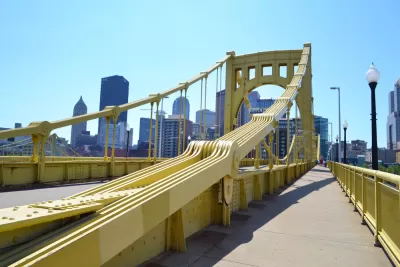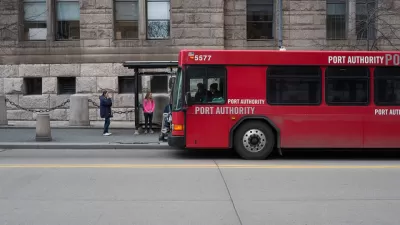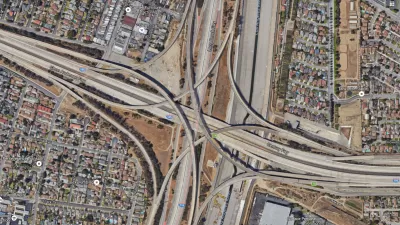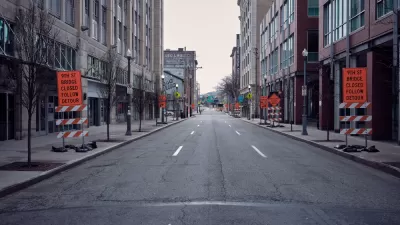The public had a chance to review the substance of the Southwestern Pennsylvania Commission's Transportation Improvement Program this week.

Ed Blazina reports on the regional Transportation Improvement Program announced by the Southwestern Pennsylvania Commission, which proposes $4.9 billion in funding over the next four years.
According to Blazina, the proposal reflects a changing region around Pittsburgh—in terms of traditional construction projects like bridge rehabilitation, intersection construction, and freeway extensions, and also in terms of more innovative projects, like:
- "Pittsburgh’s 'smart spines' — seven major traffic corridors that will have adaptive lights installed at all intersections to improve the flow of traffic
- "[C]onstruction of the Port Authority’s Bus Rapid Transit system to link Oakland and Downtown Pittsburgh with electric buses using dedicated lanes to provide rush-hour service every 4 minutes or less.
Blazina also breaks down the categories of spending included in the proposal:
- $2 billion on public transit
- $1.7 billion on roads and bridges
- $1.3 billion in intermodal projects
There's also $1.87 billion for the Port Authority of Allegheny County in the 2019-2022 plan, up from $130 million from the 2017-2020 version of the plan.
All of that money isn't just coming from state coffers—the proposal recommends spending from federal, state, and local sources. The proposal got a public hearing in Pittsburgh this week.
FULL STORY: Southwest Pa. Commission proposes $4.9 billion in transportation projects over next 4 years

Maui's Vacation Rental Debate Turns Ugly
Verbal attacks, misinformation campaigns and fistfights plague a high-stakes debate to convert thousands of vacation rentals into long-term housing.

Planetizen Federal Action Tracker
A weekly monitor of how Trump’s orders and actions are impacting planners and planning in America.

Chicago’s Ghost Rails
Just beneath the surface of the modern city lie the remnants of its expansive early 20th-century streetcar system.

Bend, Oregon Zoning Reforms Prioritize Small-Scale Housing
The city altered its zoning code to allow multi-family housing and eliminated parking mandates citywide.

Amtrak Cutting Jobs, Funding to High-Speed Rail
The agency plans to cut 10 percent of its workforce and has confirmed it will not fund new high-speed rail projects.

LA Denies Basic Services to Unhoused Residents
The city has repeatedly failed to respond to requests for trash pickup at encampment sites, and eliminated a program that provided mobile showers and toilets.
Urban Design for Planners 1: Software Tools
This six-course series explores essential urban design concepts using open source software and equips planners with the tools they need to participate fully in the urban design process.
Planning for Universal Design
Learn the tools for implementing Universal Design in planning regulations.
planning NEXT
Appalachian Highlands Housing Partners
Mpact (founded as Rail~Volution)
City of Camden Redevelopment Agency
City of Astoria
City of Portland
City of Laramie





























